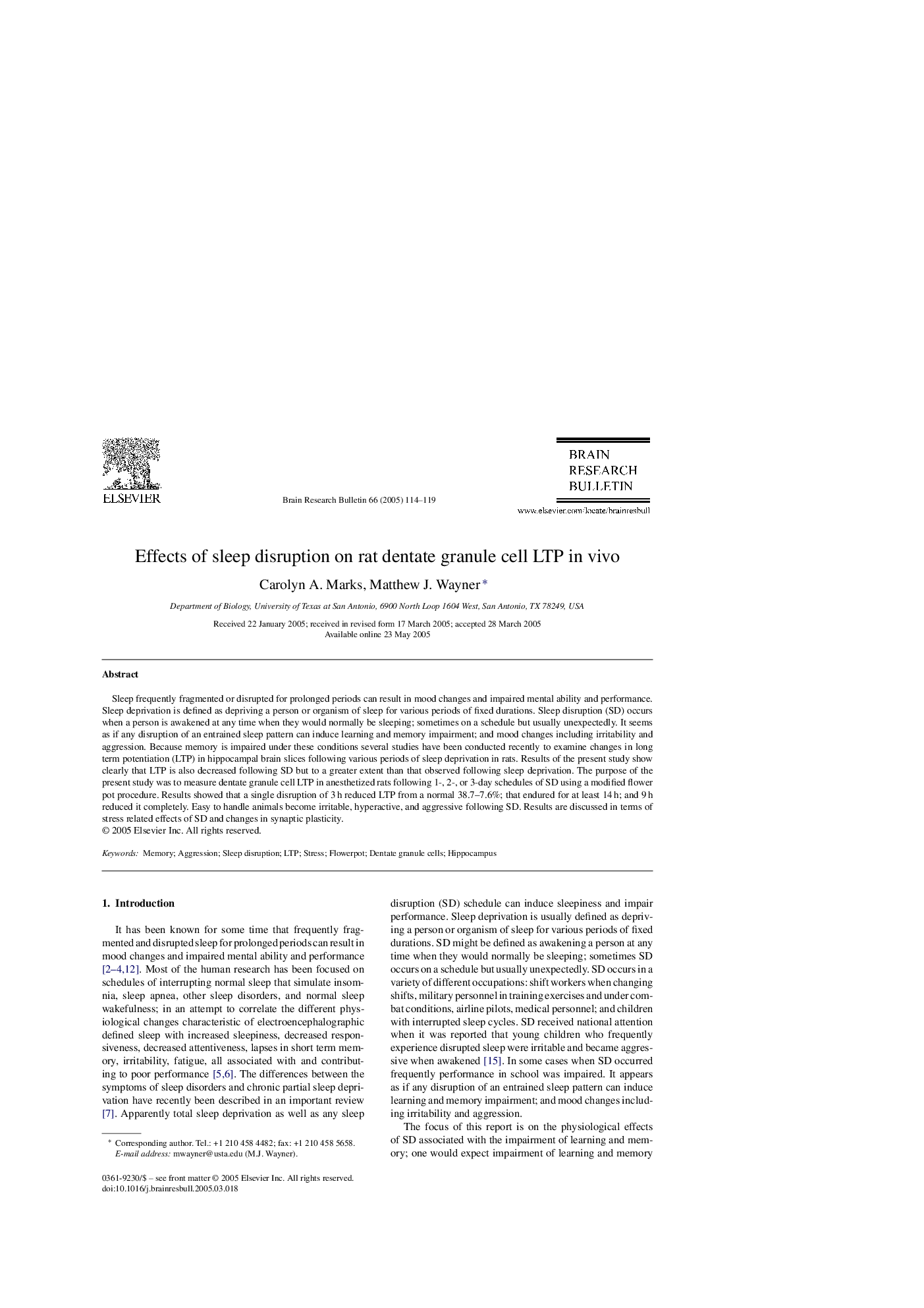| Article ID | Journal | Published Year | Pages | File Type |
|---|---|---|---|---|
| 9409524 | Brain Research Bulletin | 2005 | 6 Pages |
Abstract
Sleep frequently fragmented or disrupted for prolonged periods can result in mood changes and impaired mental ability and performance. Sleep deprivation is defined as depriving a person or organism of sleep for various periods of fixed durations. Sleep disruption (SD) occurs when a person is awakened at any time when they would normally be sleeping; sometimes on a schedule but usually unexpectedly. It seems as if any disruption of an entrained sleep pattern can induce learning and memory impairment; and mood changes including irritability and aggression. Because memory is impaired under these conditions several studies have been conducted recently to examine changes in long term potentiation (LTP) in hippocampal brain slices following various periods of sleep deprivation in rats. Results of the present study show clearly that LTP is also decreased following SD but to a greater extent than that observed following sleep deprivation. The purpose of the present study was to measure dentate granule cell LTP in anesthetized rats following 1-, 2-, or 3-day schedules of SD using a modified flower pot procedure. Results showed that a single disruption of 3Â h reduced LTP from a normal 38.7-7.6%; that endured for at least 14Â h; and 9Â h reduced it completely. Easy to handle animals become irritable, hyperactive, and aggressive following SD. Results are discussed in terms of stress related effects of SD and changes in synaptic plasticity.
Related Topics
Life Sciences
Neuroscience
Cellular and Molecular Neuroscience
Authors
Carolyn A. Marks, Matthew J. Wayner,
